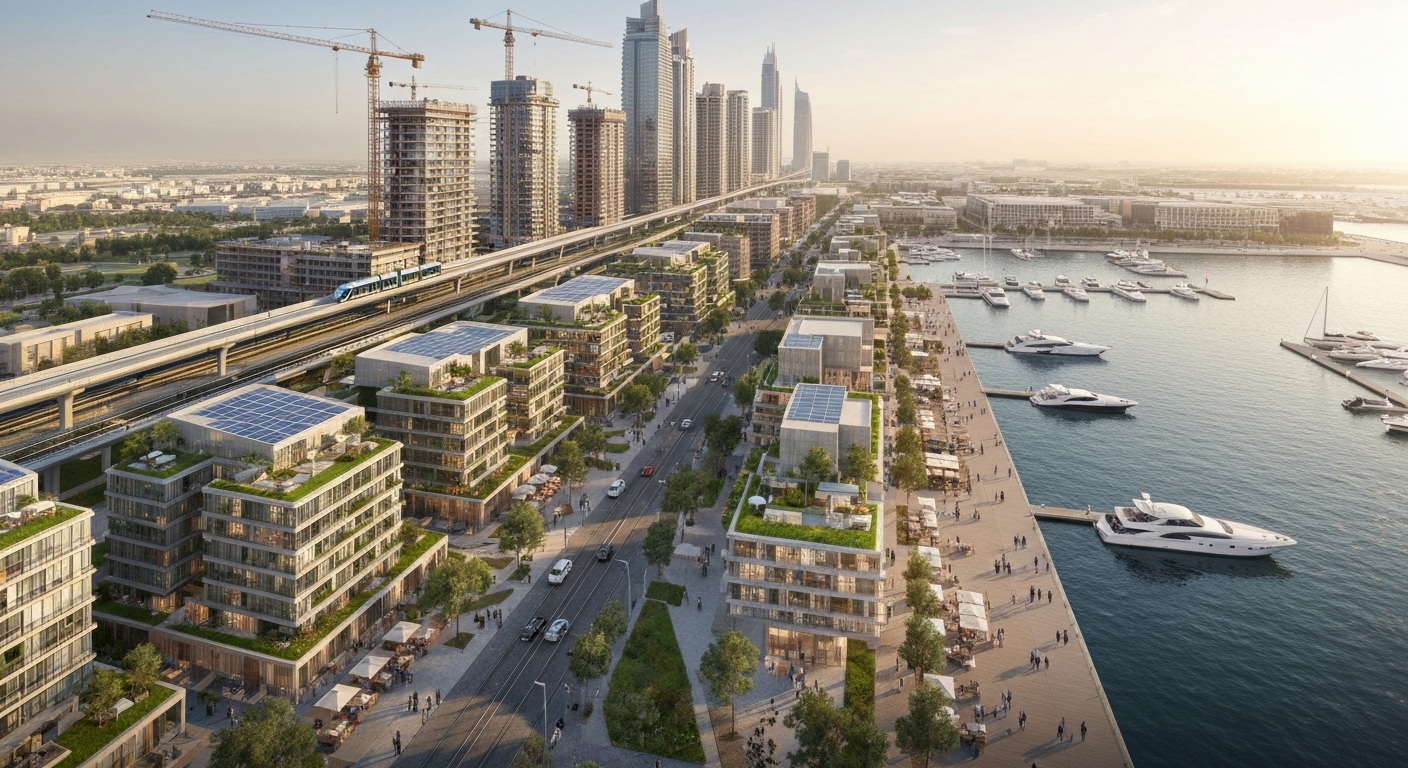Dubai real estate market forecast next 5 years is a question on the minds of both local and international investors seeking sustained, data-backed growth in one of the world’s most dynamic property hubs. In this article, we provide a detailed, developer-focused analysis of Dubai’s real estate momentum, with strategic insights into what the next five years hold for residential, commercial, and retail property segments.
Understanding the Current Landscape: Dubai’s Real Estate Momentum
Dubai’s real estate market continues to capture global attention, driven by robust economic growth, infrastructure investment, and visionary government initiatives. Over the past several years, new policies—such as 100% foreign ownership in select sectors and extended residency visas—have enhanced investor confidence and contributed to increased transaction volumes. Steady population growth, underscored by a cosmopolitan talent pool and an expanding expatriate base, fuels long-term demand for both residential and commercial properties.
The current property cycle is distinguished by a more balanced relationship between supply and demand. Regulatory oversight has tempered market volatility, positioning Dubai for sustainable appreciation rather than speculative spikes. Investment in infrastructure—such as the expansion of the Dubai Metro, master-planned communities, and new logistics hubs—further bolsters long-range real estate prospects.
Key Drivers Shaping Dubai’s Property Market (Next 5 Years)
Several core dynamics are set to shape the Dubai real estate market forecast for the next five years. First, Dubai’s global business status remains a magnet for overseas capital, especially as the city continues to attract multinational corporations, regional headquarters, and tech innovators. Ongoing government commitment to economic diversification in areas like tourism, finance, and renewable energy will stimulate job creation and population inflow.
Second, the luxury and branded residence segment is projected to lead growth, with prime areas such as Downtown Dubai, Dubai Marina, and Palm Jumeirah expected to see elevated demand. Rental yields in premium and waterfront communities are forecasted in the range of 6% to 12%, and mid- to upper-income segments are likely to see stable capital appreciation through 2025 and beyond.
Third, the off-plan and ready-to-move property markets offer compelling investment opportunities, supported by flexible payment plans and strong developer reputations. Sustainable building practices and integrated lifestyle amenities are increasingly influencing buyer decisions, creating further differentiation in value.
Forecast by Property Type: Residential, Commercial, and Retail
Across residential properties, steady appreciation is projected over the next five years, with family-focused neighborhoods and mixed-use developments remaining in high demand. Waterfront residences, luxury apartments, and branded developments are expected to deliver the highest performance metrics.
Commercial real estate is evolving as Dubai establishes itself as the regional headquarters hub for global firms. Demand for Grade A office spaces, particularly in business districts like Business Bay and DIFC, is expected to rise. Retail, meanwhile, is being shaped by both traditional malls and experiential concepts, driven by growing tourism and changing consumer habits.
Long-Term Investment Insights
The pipeline of new developments remains carefully managed, countering oversupply concerns and supporting healthy capital values. Market data points toward a resilient climate for investors pursuing both capital appreciation and regular rental income. International demand remains strong, catalyzed by Dubai’s reputation as a safe haven for investment and comprehensive lifestyle offerings.
Emerging Hotspots and High-Growth Areas for Investment
Strategic locations such as Mohammed Bin Rashid City, Dubai Creek Harbour, Jumeirah Village Circle, and the expanded Expo City district are poised to outperform, benefiting from new infrastructure, lifestyle amenities, and master planning. These areas offer competitive entry prices and strong potential for rental yields and long-term value, making them especially attractive to forward-looking investors.
Conclusion: Dubai Real Estate Market Forecast Next 5 Years
The Dubai real estate market forecast for the next five years points to sustainable growth, robust rental yields, and expanding opportunities across residential, commercial, and retail segments. Investors who focus on emerging hotspots, premium developments, and sound developer reputations stand to benefit as the city cements its position as a global leader in property investment. For tailored guidance and access to the latest opportunities, contact Danube Properties to learn more.




